 W
WEarl Marshal is a hereditary royal officeholder and chivalric title under the sovereign of the United Kingdom used in England. He is the eighth of the Great Officers of State in the United Kingdom, ranking beneath the Lord High Constable and above the Lord High Admiral. A Duke of Norfolk has held the office since 1672.
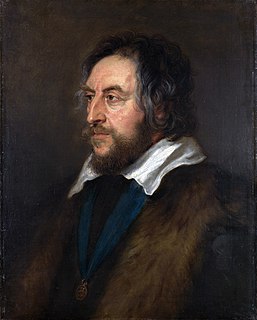 W
WThomas Howard, 14th Earl of Arundel KG, was a prominent English courtier during the reigns of King James I and King Charles I, but he made his name as a Grand Tourist and art collector rather than as a politician. When he died he possessed 700 paintings, along with large collections of sculpture, books, prints, drawings, and antique jewellery. Most of his collection of marble carvings, known as the Arundel marbles, was eventually left to the University of Oxford.
 W
WWilliam de Berkeley, 1st Marquess of Berkeley was an English peer, given the epithet "The Waste-All" by the family biographer and steward John Smyth of Nibley. He was buried at "St. Augustine's Friars, London" according to one source, but most likely in the Berkeley family foundation of St Augustine's Abbey, Bristol.
 W
WRobert Devereux, 2nd Earl of Essex, KG, PC, was an English nobleman and a favourite of Elizabeth I. Politically ambitious, and a committed general, he was placed under house arrest following a poor campaign in Ireland during the Nine Years' War in 1599. In 1601, he led an abortive coup d'état against the government and was executed for treason.
 W
WHenry VIII was King of England from 1509 until his death in 1547. Henry is best known for his six marriages, and, in particular, his efforts to have his first marriage annulled. His disagreement with Pope Clement VII on the question of such an annulment led Henry to initiate the English Reformation, separating the Church of England from papal authority. He appointed himself Supreme Head of the Church of England and dissolved convents and monasteries, for which he was excommunicated. Henry is also known as "the father of the Royal Navy," as he invested heavily in the navy, increasing its size from a few to more than 50 ships, and established the Navy Board.
 W
WWilliam Marshal, 1st Earl of Pembroke, also called William the Marshal, was an Anglo-Norman soldier and statesman. He served five English kings – Henry II, his sons the "Young King" Henry, Richard I, John, and John's son Henry III.
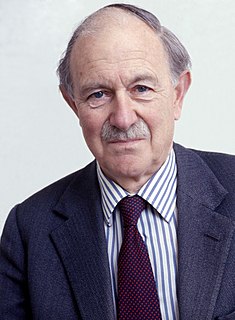 W
WMajor General Miles Francis Stapleton Fitzalan-Howard, 17th Duke of Norfolk, was a British Army general and peer. He was the eldest son of Bernard Fitzalan-Howard, 3rd Baron Howard of Glossop, and his wife Mona Stapleton, 11th Baroness Beaumont. In 1975, he inherited the Dukedom of Norfolk from his second cousin once removed, making him the premier duke in the Peerage of England.
 W
WBernard Marmaduke Fitzalan-Howard, 16th Duke of Norfolk, styled Earl of Arundel and Surrey until 1917, was a British peer and politician. He was the eldest surviving son of Henry Fitzalan-Howard, 15th Duke of Norfolk, who died when Bernard was only nine years old. His mother was Gwendoline Herries, 12th Lady Herries of Terregles, and he inherited her peerage when she died in 1945.
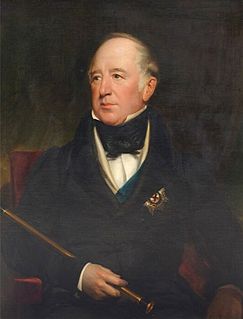 W
WBernard Edward Howard, 12th Duke of Norfolk, was a British peer.
 W
WCharles Howard, 11th Duke of Norfolk, styled Earl of Surrey from 1777 to 1786, was a British nobleman, peer, and politician. He was the son of Charles Howard, 10th Duke of Norfolk and Catherine Brockholes. Howard was known for actively participating in the Tory party as part of the support for King George III. He also spent a considerable amount of his money rebuilding and refurbishing Arundel Castle after inheriting his title and lands.
 W
WEdward William Fitzalan-Howard, 18th Duke of Norfolk,, styled Earl of Arundel between 1975 and 2002, is a British peer who holds the office of Earl Marshal. As Duke of Norfolk, he is the most senior lay peer in the peerage of England.
 W
WEdward Howard, 9th Duke of Norfolk, of Worksop Manor in Nottinghamshire and of Norfolk House in London, was a British peer, politician and hereditary Earl Marshal.
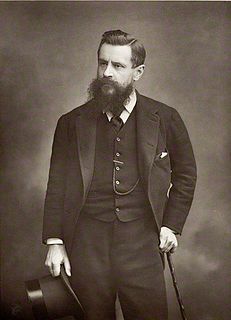 W
WHenry Fitzalan-Howard, 15th Duke of Norfolk,, styled Baron Maltravers until 1856 and Earl of Arundel and Surrey between 1856 and 1860, was a British Unionist politician and philanthropist. He served as Postmaster General between 1895 and 1900, but is best remembered for his philanthropic work, which concentrated on Roman Catholic causes and the city of Sheffield.
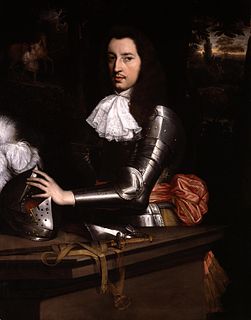 W
WHenry Howard, 6th Duke of Norfolk was an English nobleman and politician. He was the second son of Henry Howard, 22nd Earl of Arundel, and Lady Elizabeth Stuart. He succeeded his brother Thomas Howard, 5th Duke of Norfolk after Thomas's death in 1677.
 W
WHenry Howard, 7th Duke of Norfolk, KG PC Earl Marshal was an English nobleman, politician, and soldier. He was the son of Henry Howard, 6th Duke of Norfolk and Lady Anne Somerset, daughter of Edward Somerset, 2nd Marquess of Worcester and Elizabeth Dormer. He was summoned to the House of Lords in his own right as Baron Mowbray in 1678. His unhappy marriage was a subject of much gossip, and ended in divorce.
 W
WHenry Charles Howard, 13th Duke of Norfolk,, styled Earl of Surrey between 1815 and 1842, was a British Whig politician and peer.
 W
WJohn Howard, 1st Duke of Norfolk, was an English nobleman, soldier, politician, and the first Howard Duke of Norfolk. He was a close friend and loyal supporter of King Richard III, with whom he was slain at the Battle of Bosworth in 1485.
 W
WJohn de Mowbray, 2nd Duke of Norfolk, 8th Baron Mowbray, 9th Baron Segrave KG, Earl Marshal was an English nobleman and soldier. He was a younger son of the first Duke of Norfolk, but inherited his father's earldom of Norfolk when his elder brother rebelled against King Henry IV and was executed before reaching the age of inheritance. This and the fact that his mother lived to an old age and held a third of his estates in dower, meant that until the last few years of his life he was, although an important political figure, poorly-off financially.
 W
WJohn Mowbray, 3rd Duke of Norfolk, KG, Earl Marshal was a fifteenth-century English magnate who, despite having a relatively short political career, played a significant role in the early years of the Wars of the Roses. Mowbray was born in 1415, the only son and heir of John de Mowbray, 2nd Duke of Norfolk, and Katherine Neville. He inherited his titles upon his father's death in 1432. As a minor he became a ward of King Henry VI and was placed under the protection of Humphrey, Duke of Gloucester, alongside whom Mowbray would later campaign in France. He seems to have had an unruly and rebellious youth. Although the details of his misconducts are unknown, they were severe enough for the King to place strictures upon him and separate him from his followers. Mowbray's early career was spent in the military, where he held the wartime office of Earl Marshal. Later he led the defence of England's possessions in Normandy during the Hundred Years' War. He fought in Calais in 1436, and during 1437–38 served as warden of the east march on the Anglo-Scottish border, before returning to Calais.
 W
WJohn de Mowbray, 4th Duke of Norfolk, KG, known as 1st Earl of Surrey between 1451 and 1461, was the only son of John de Mowbray, 3rd Duke of Norfolk and Eleanor Bourchier. His maternal grandparents were William Bourchier, Count of Eu and Anne of Gloucester.
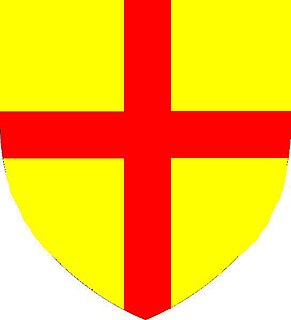 W
WRoger Bigod was 4th Earl of Norfolk and Marshal of England.
 W
WRoger Bigod was 5th Earl of Norfolk.
 W
WThomas Howard, 2nd Duke of Norfolk, styled Earl of Surrey from 1483 to 1485 and again from 1489 to 1514, was an English nobleman, soldier and statesman who served four monarchs. He was the eldest son of John Howard, 1st Duke of Norfolk, by his first wife, Catharina de Moleyns. The Duke was the grandfather of both Queen Anne Boleyn and Queen Catherine Howard and the great-grandfather of Queen Elizabeth I. In 1513 he led the English to victory over the Scots at the decisive Battle of Flodden, for which he was richly rewarded by King Henry VIII, then away in France.
 W
WThomas Howard, 3rd Duke of Norfolk, was a prominent English politician and nobleman of the Tudor era. He was an uncle of two of the wives of King Henry VIII, namely Anne Boleyn and Catherine Howard, both of whom were beheaded, and played a major role in the machinations affecting these royal marriages. After falling from favour in 1546, he was stripped of his dukedom and imprisoned in the Tower of London, avoiding execution when Henry VIII died on 28 January 1547.
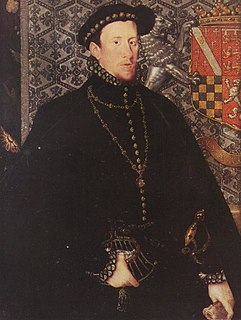 W
WThomas Howard, 4th Duke of Norfolk, was an English nobleman and politician. Although from a family with strong Catholic leanings, he was raised a Protestant. He was a second cousin of Queen Elizabeth I through her maternal grandmother, and held many high offices during her reign.
 W
WThomas Howard, 8th Duke of Norfolk, Earl Marshal was an English peer and politician. He was the first son of Lord Thomas Howard and Mary Elizabeth Savile. Upon the death of his uncle Henry Howard, 7th Duke of Norfolk, he inherited the titles of 17th Baron Furnivall and 8th Duke of Norfolk. He married Maria Shireburn, daughter of Sir Nicholas Shireburn, 1st and last Bt., of Stonyhurst Hall, on 26 May 1709, when she was age 16 and a half, with a fortune of more than £30,000.
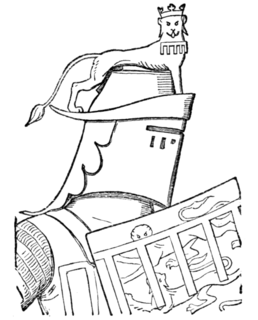 W
WThomas de Mowbray, 1st Duke of Norfolk, 1st Earl of Nottingham, 3rd Earl of Norfolk, 6th Baron Mowbray, 7th Baron Segrave, KG, Earl Marshal was an English peer. As a result of his involvement in the power struggles which led up to the fall of Richard II, he was banished and died in exile in Venice.
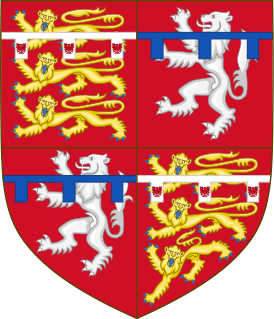 W
WThomas de Mowbray, 4th Earl of Norfolk, 2nd Earl of Nottingham, 8th Baron Segrave, 7th Baron Mowbray, English nobleman and rebel, was the son of Thomas de Mowbray, 1st Duke of Norfolk and Lady Elizabeth FitzAlan.
 W
WJohn Dudley, 1st Duke of Northumberland was an English general, admiral, and politician, who led the government of the young King Edward VI from 1550 until 1553, and unsuccessfully tried to install Lady Jane Grey on the English throne after the King's death. The son of Edmund Dudley, a minister of Henry VII executed by Henry VIII, John Dudley became the ward of Sir Edward Guildford at the age of seven. Dudley grew up in Guildford's household together with his future wife, Guildford's daughter Jane, with whom he was to have 13 children. Dudley served as Vice-Admiral and Lord Admiral from 1537 until 1547, during which time he set novel standards of navy organisation and was an innovative commander at sea. He also developed a strong interest in overseas exploration. Dudley took part in the 1544 campaigns in Scotland and France and was one of Henry VIII's intimates in the last years of the reign. He was also a leader of the religious reform party at court.
 W
WGilbert fitz Gilbert de Clare, was created Earl of Pembroke in 1138.
 W
WGilbert Marshal, 4th Earl of Pembroke was the third son of William Marshal, 1st Earl of Pembroke and Isabel de Clare, 4th Countess of Pembroke, the daughter of Richard de Clare. He was a friend and ally of Richard, 1st Earl of Cornwall.
 W
WWilliam Marshal, 2nd Earl of Pembroke was a medieval English nobleman and was one of Magna Carta sureties. He fought during the First Barons' War and was present at the Battle of Lincoln (1217) alongside his father William Marshal, 1st Earl of Pembroke, who led the English troops in that battle. He commissioned the first biography of a medieval knight to be written, called L'Histoire de Guillaume le Mareschal, in honour of his father.
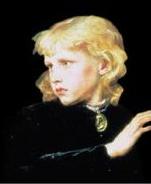 W
WRichard of Shrewsbury, Duke of York KG, was the sixth child and second son of King Edward IV of England and Elizabeth Woodville, born in Shrewsbury. Richard and his older brother, who briefly reigned as King Edward V of England, mysteriously disappeared shortly after Richard III became king in 1483.
 W
WSir George Talbot, 6th Earl of Shrewsbury, 6th Earl of Waterford, 12th Baron Talbot, KG, Earl Marshal was an English magnate and military commander. He also held the subsidiary titles of 15th Baron Strange of Blackmere and 11th Baron Furnivall. He was best known for his tenure as keeper of Mary, Queen of Scots between 1568 – 1585, his marriage to his second wife Elizabeth Talbot, as well as his surviving collection of written work.
 W
WEdward Seymour, 1st Duke of Somerset, also known as Edward Semel, was the eldest surviving brother of Queen Jane Seymour (d. 1537), the third wife of King Henry VIII. He was Lord Protector of England from 1547 to 1549 during the minority of his nephew King Edward VI (1547–1553). Despite his popularity with the common people, his policies often angered the gentry and he was overthrown.
 W
WThomas Holland, 1st Duke of Surrey, 3rd Earl of Kent, KG, Earl Marshal was an English nobleman and courtier.
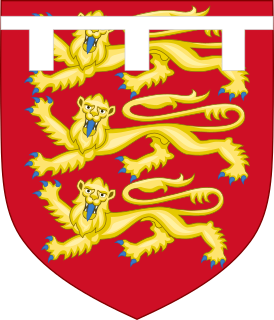 W
WThomas of Brotherton, 1st Earl of Norfolk, was the fifth son of King Edward I of England (1272–1307), and the eldest child by his second wife, Margaret of France, the daughter of King Philip III of France. He was, therefore, a younger half-brother of King Edward II (1307–1327) and a full brother of Edmund of Woodstock, 1st Earl of Kent. He occupied the office of Earl Marshal of England.
 W
WRalph Neville, 1st Earl of Westmorland Earl Marshal, was an English nobleman of the House of Neville.
 W
WEdward Somerset, 4th Earl of Worcester, KG, Earl Marshal was an English aristocrat. He was an important advisor to King James I, serving as Lord Privy Seal.